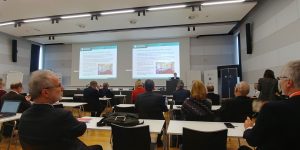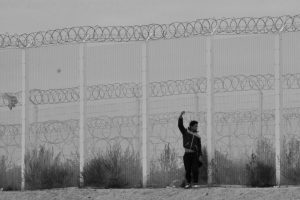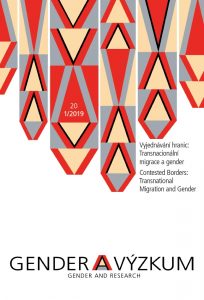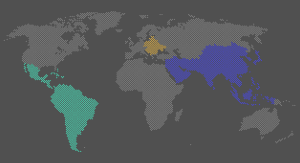18–19 October 2019
Academic Conference Centre
Husova 4a, Praha 1

What is the role of literary imagination for social, political, and religious change? To answer this question, we need to expand our view beyond literary text, and include the practices of writing, publishing, reading, and literary socialisation. Anthropological and other social scientific study of literature is a small but emerging field that allows to understand the relationship between human subjectitivies and social processes in a way that text-based approaches alone cannot. Anthropologists, historians and scholars of literature working with fieldwork and archival methodologies had stressed the importance of non-literary objects in understanding literature, such as coffee houses, political movements and revolutionary contexts, the motivations and personal consequences of writing, the learning and teaching of techniques, the relationship of aesthetics, class, morals and gender, and exiles and migrations. Some of these topics have been studied historically but until recently, less so in the contemporary context.
The conference aims to explore the state of the art in the emerging study of literature as a social practice, and to push it forward in terms of both content and methodology. Importantly, it takes a decidedly trans-local approach, and gives special – but not exclusive – attention to literatures in and from the Middle East and Central Europe. An understanding of the role literature plays in these regions is especially important in the context of globalisation and migrations, whereby literature has proven to be an important medium to communicate experiences, hopes and fear across cultural divides.
Programme (PDF)
 Centre of Global Studies organises a part of the conference on science diplomacy and European research infrastructures. The Czech Academy of Sciences organizes it in cooperation with the European Academy of Sciences and Arts as the Danube Academies Conference. Detailed programme of the conference is available here.
Centre of Global Studies organises a part of the conference on science diplomacy and European research infrastructures. The Czech Academy of Sciences organizes it in cooperation with the European Academy of Sciences and Arts as the Danube Academies Conference. Detailed programme of the conference is available here.

 Mass arbitrary detention of Uyghurs, Kazakhs, and individuals belonging to other, mostly Muslim nationalities in political reeducation camps in China’s northwestern Xinjiang region, also known as East Turkestan, is among the most controversial phenomena seen by the world in the 21st century. The Chinese policy in East Turkestan has also become an irritant of China’s relations with a part of the international community. This debate brings together activists and experts who will discuss latest developments in East Turkestan and their international implications.
Mass arbitrary detention of Uyghurs, Kazakhs, and individuals belonging to other, mostly Muslim nationalities in political reeducation camps in China’s northwestern Xinjiang region, also known as East Turkestan, is among the most controversial phenomena seen by the world in the 21st century. The Chinese policy in East Turkestan has also become an irritant of China’s relations with a part of the international community. This debate brings together activists and experts who will discuss latest developments in East Turkestan and their international implications. The conference aims to bring together various empirically grounded and historically informed studies exploring different kinds and multiple dimensions of Romani mobility and immobility in Europe and beyond since 1945. Locating these mobilities in the broader political, social, historical and cultural contexts and forces, contributors are invited to reflect on both voluntary and forced migration, patterns of seasonal mobility, and various forms of mobility (e.g. existential, physical, social) as a reaction to oppressive conditions as well as newly opened possibilities.
The conference aims to bring together various empirically grounded and historically informed studies exploring different kinds and multiple dimensions of Romani mobility and immobility in Europe and beyond since 1945. Locating these mobilities in the broader political, social, historical and cultural contexts and forces, contributors are invited to reflect on both voluntary and forced migration, patterns of seasonal mobility, and various forms of mobility (e.g. existential, physical, social) as a reaction to oppressive conditions as well as newly opened possibilities. This thematic issue on ‘Contested Borders: Transnational Migration and Gender’ includes articles that exemplify the various analytical lenses through which it is possible to conceptualise borders in their material, economic, political, and symbolic meanings and with which analysis can be enriched, by considering gendered structures and constructions of vulnerabilities in the broader context of bordered spaces built on a colonial and postcolonial past and redesigned by global capitalism. Borders represent not only a geographical dividing line separating ‘us’ from ‘others’, but are also symbolic and cultural dividing lines that reinforce the hegemonic interpretation of acceptable/unacceptable practices or identities.
This thematic issue on ‘Contested Borders: Transnational Migration and Gender’ includes articles that exemplify the various analytical lenses through which it is possible to conceptualise borders in their material, economic, political, and symbolic meanings and with which analysis can be enriched, by considering gendered structures and constructions of vulnerabilities in the broader context of bordered spaces built on a colonial and postcolonial past and redesigned by global capitalism. Borders represent not only a geographical dividing line separating ‘us’ from ‘others’, but are also symbolic and cultural dividing lines that reinforce the hegemonic interpretation of acceptable/unacceptable practices or identities. Noting the unfolding conceptual exchange between mobility studies and animal studies, the objective of the international workshop Emigrating Animals and Migratory Humans: Belonging, Prosperity and Security in More-Than-Human World is to further the dialogue and bring together scholars of human migration and non-human animal migration. At the intersection of these two fields of study we expect a range of engaging questions to emerge. Migration often involves the destabilisation of established orders of belonging and the triggering of processes of othering and protectionism. What are the potential empirical and analytical synergies between studying the movement of people and that of non-human animals across geophysical, symbolic and biopolitical borders? In many contexts, human migrants are derogatively described with the use of animal metaphors (e.g. as cockroaches) while animals, often equally derogatively, are described with the human qualifiers (e.g. as invaders). What should we make out of those analogies? Can we still speak about the flow of “metaphors” between accounts of human and non-human migration if we refuse to see the two as belonging to ontologically disparate domains (one exclusively human, the other exclusively non-human)?
Noting the unfolding conceptual exchange between mobility studies and animal studies, the objective of the international workshop Emigrating Animals and Migratory Humans: Belonging, Prosperity and Security in More-Than-Human World is to further the dialogue and bring together scholars of human migration and non-human animal migration. At the intersection of these two fields of study we expect a range of engaging questions to emerge. Migration often involves the destabilisation of established orders of belonging and the triggering of processes of othering and protectionism. What are the potential empirical and analytical synergies between studying the movement of people and that of non-human animals across geophysical, symbolic and biopolitical borders? In many contexts, human migrants are derogatively described with the use of animal metaphors (e.g. as cockroaches) while animals, often equally derogatively, are described with the human qualifiers (e.g. as invaders). What should we make out of those analogies? Can we still speak about the flow of “metaphors” between accounts of human and non-human migration if we refuse to see the two as belonging to ontologically disparate domains (one exclusively human, the other exclusively non-human)? Over the past decades, Europe has witnessed a marked economic rise of East Asia, where China has become the dominant player. Russia, which together with four other post-Soviet states declared the Eurasian Economic Union in 2015, is also looking for its own way. In this context, the Shanghai Cooperation Organization (SCO), which accounts for almost half of the world’s population, and generates GDP similar to that of the EU. The main objective of the Prague Conference is to analyze the potential and limits of the SCO as the main non-Western organization in Eurasia and to analyze areas of (possible) cooperation and conflict in relation to the EU, and also between individual member states themselves and other organizations.
Over the past decades, Europe has witnessed a marked economic rise of East Asia, where China has become the dominant player. Russia, which together with four other post-Soviet states declared the Eurasian Economic Union in 2015, is also looking for its own way. In this context, the Shanghai Cooperation Organization (SCO), which accounts for almost half of the world’s population, and generates GDP similar to that of the EU. The main objective of the Prague Conference is to analyze the potential and limits of the SCO as the main non-Western organization in Eurasia and to analyze areas of (possible) cooperation and conflict in relation to the EU, and also between individual member states themselves and other organizations.
 This international workshop seeks to contribute to the ongoing debate about the de-consolidation of democracy. It will explore the contemporary disappointment with the ways how democracy is functioning, manifested in the falling confidence in democratic institutions. Worldwide, traditional political parties are losing their electoral base and are unable to reflect the growing contradictions and inequality in society adequately. Polarization of society and marginalization of some groups lead to the support of new populist-oriented political actors around the world. We bring together a set of experts from around the world. We will focus on similarities and differences between three key regions: Central and Eastern Europe, Latin America and Asia. During the workshop, two recently monographs will be presented – Communists and Their Victims: The Quest for Justice in the Czech Republic (2018, by Roman David) and Democracy under Stress: Changing Perspectives on Democracy, Governance and Their Measurement (edited by Petra Guasti and Zdenka Mansfeldova).
This international workshop seeks to contribute to the ongoing debate about the de-consolidation of democracy. It will explore the contemporary disappointment with the ways how democracy is functioning, manifested in the falling confidence in democratic institutions. Worldwide, traditional political parties are losing their electoral base and are unable to reflect the growing contradictions and inequality in society adequately. Polarization of society and marginalization of some groups lead to the support of new populist-oriented political actors around the world. We bring together a set of experts from around the world. We will focus on similarities and differences between three key regions: Central and Eastern Europe, Latin America and Asia. During the workshop, two recently monographs will be presented – Communists and Their Victims: The Quest for Justice in the Czech Republic (2018, by Roman David) and Democracy under Stress: Changing Perspectives on Democracy, Governance and Their Measurement (edited by Petra Guasti and Zdenka Mansfeldova).